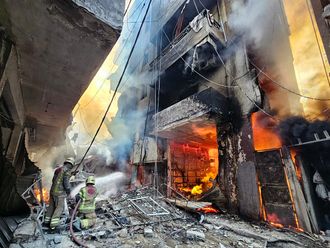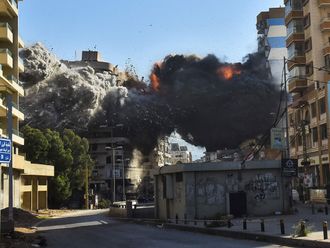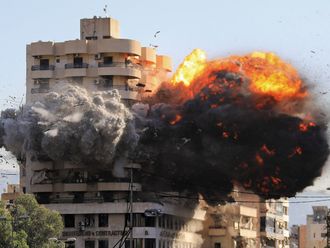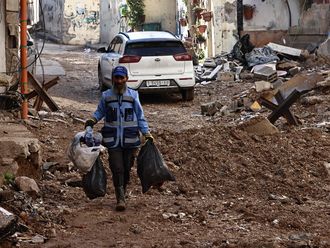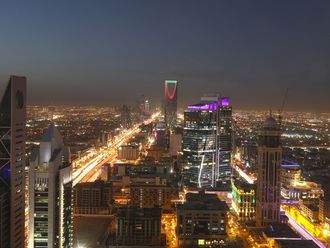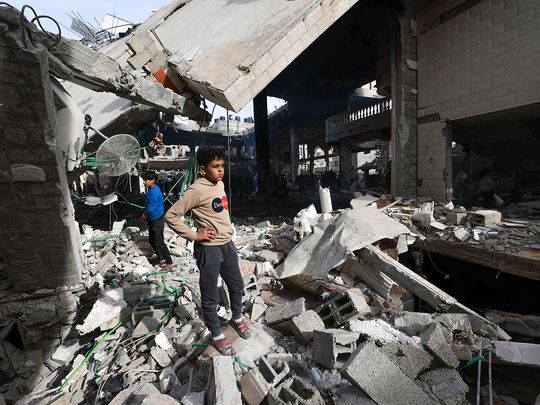
Gaza Strip: US President Joe Biden said Israel has agreed to halt military activities in Gaza for the holy month of Ramadan, as Hamas studied a draft proposal for a truce which includes a pause in fighting and a prisoner-hostage exchange.
The draft proposal, which a senior source close to truce talks in Paris told Reuters would allow hospitals and bakeries in Gaza to be repaired and 500 aid trucks to enter the battered enclave every day, is the most serious attempt in weeks to end the conflict which erupted in October last year.
Ramadan is expected to begin on the evening of March 10th and end on the evening of April 9.
"Ramadan is coming up, and there’s been an agreement by the Israelis that they would not engage in activities during Ramadan, as well, in order to give us time to get all the hostages out," Biden said during an appearance on NBC's "Late Night with Seth Meyers".
He also warned that Israel risked losing international support due to the high death toll among Palestinians, adding that Israel had committed to make it possible for Palestinians to evacuate from Rafah in Gaza's south before intensifying its campaign there to destroy Hamas.
Biden, whose remarks were recorded on Monday and broadcast on Tuesday, said there was an agreement in principle for a ceasefire between the two sides while hostages were released. He said he hoped to have a ceasefire in the conflict by the following Monday.
"My national security adviser tells me that they're close, they're close, they're not done yet," Biden told reporters in New York, when asked when he thought a cease-fire would start. "My hope is by next Monday we'll have a cease-fire," he added.
"There are too many innocent people that are being killed. And Israel has slowed down the attacks in Rafah," Biden said, adding that a temporary ceasefire would jumpstart a process for Palestinians to have their own state.
Israeli Prime Minister Benjamin Netanyahu has rejected a two-state solution.
Under the draft proposal, the exchange of Palestinian prisoners for Israeli hostages would be at a ratio of 10 to one, the senior source said. The draft also states Hamas would free 40 Israeli hostages including women, children under 19, elderly over 50 and the sick, while Israeli would release around 400 Palestinian prisoners and will not re-arrest them, the source told Reuters.
Negotiations continue
In a protracted bid to bring about a truce, Egypt, Qatar, the United States, France and others have acted as go-betweens for Israel and Hamas, with negotiations ongoing.
US National Security Advisor Jake Sullivan said on Sunday that representatives from Israel, the US, Egypt and Qatar meeting in Paris. They are seeking a six-week halt to the fighting and the release of Israeli hostages held in Gaza since Hamas's October 7 attack on southern Israel sparked the war.
Read More
- Palestinian PM submits government’s resignation, a move that could open door to US-backed reforms
- Israel strikes deeper into Lebanon after Hezbollah downs drone
- Netanyahu says he’ll soon have plan for Rafah civilians
- Hunger grips north of war-torn Gaza: ‘Our only hope is God, there is nobody else to help’
A deal could include the release of several hundred Palestinian detainees held by Israel, media reports suggest.
Qatar's Emir Sheikh Tamim bin Hamad Al Thani is due in Paris this week, according to the French presidency.
But Israeli Prime Minister Benjamin Netanyahu has stressed any truce deal would delay, not prevent, a ground invasion of Rafah in the far south of the Gaza Strip, which he said was necessary to achieve "total victory" over Hamas.
With Israeli ground troops operating in every other major urban area of the Gaza Strip nearly five months into the war, an estimated 1.4 million Palestinian civilians have sought shelter in Rafah.
Netanyahu's office on Monday said the military had shown Israel's war cabinet its plan for evacuating civilians from Rafah, but no details have been released on where those displaced people could go.
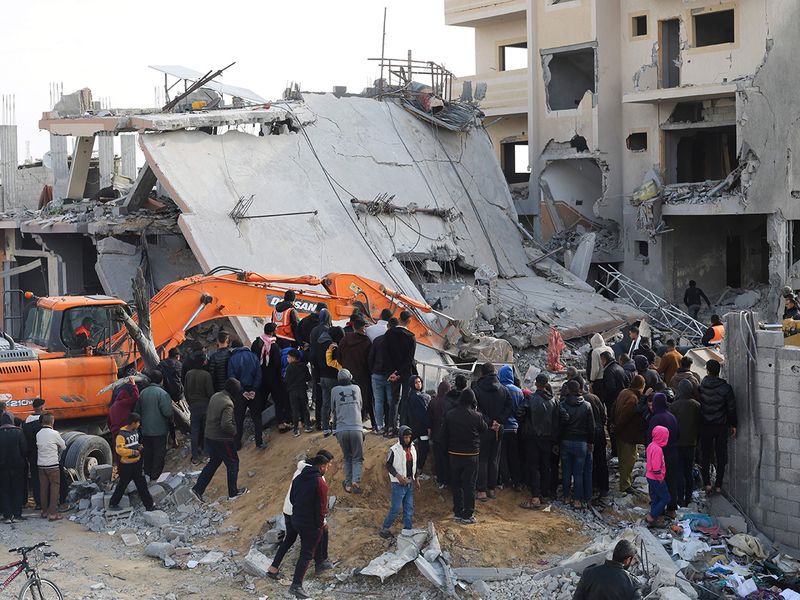
‘Gaza fate under scrutiny’
The "collective punishment" of civilians in Gaza was not justifiable, the UN chief told the Human Rights Council on Monday, amid mounting fears of an Israeli invasion of Rafah.
UN Secretary-General Antonio Guterres said that Rafah was "the core of the humanitarian aid operation" in the Palestinian territory.
"An all-out Israeli offensive on the city would not only be terrifying for more than a million Palestinian civilians sheltering there; it would put the final nail in the coffin of our aid programmes," he said.
His comments came after Israeli Prime Minister Benjamin Netanyahu on Sunday said that, despite ongoing talks toward a ceasefire, Israel's army will launch a ground invasion of Rafah to achieve "total victory" over Hamas.
'Profoundly destructive'
In his address, UN rights chief Volker Turk lamented widespread disinformation and other attacks aimed to "undermine the legitimacy" of UN agencies.
"This is profoundly destructive," he said, adding that "UN humanitarian agencies assist hundreds of millions of people to stay alive".
Guterres also condemned the UN Security Council for failing to act on his calls to take all measures to "end the bloodshed in Gaza and prevent escalation".
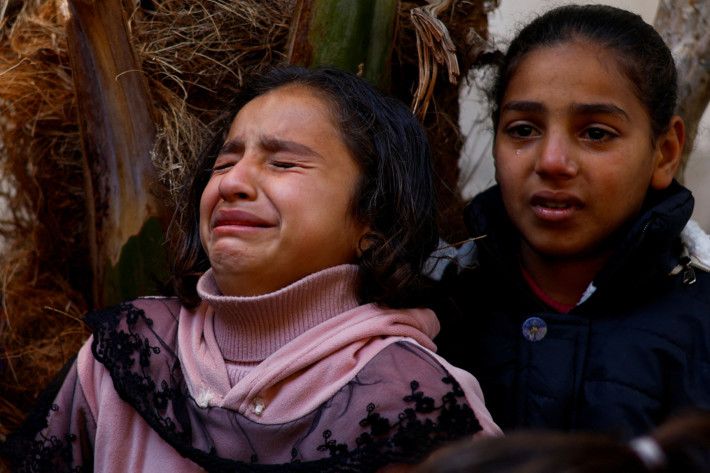
Ahead of any ground assault, Rafah has not been spared from Israel's campaign of strikes.
Displaced Gazan Sharif Muammar told AFP his son's body had been pulled from the rubble after a strike on the city.
"There was no one here - only children," he said, in tears.
Israel's military campaign has killed at least 29,782 people in Gaza, mostly women and children, according to the Hamas-ruled territory's health ministry.
Starving Gazans
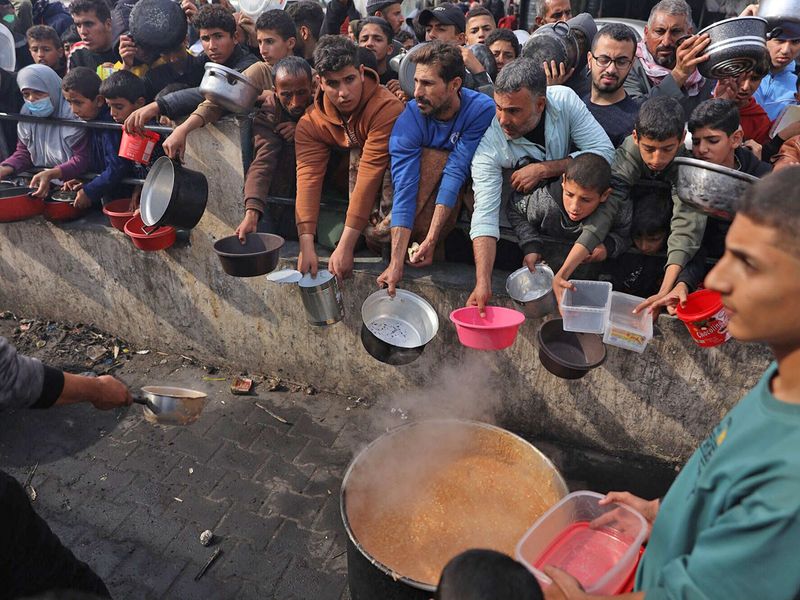
In Gaza's north, desperate Palestinians have scavenged for food as most aid trucks have been halted, with many people eating animal fodder and even leaves.
"We have no flour or anything. We are experiencing famine," lamented Umm Tahseini Al Masry, who was displaced and now in Jabalia refugee camp, north of Gaza City.
"This is not a life."
The Jordanian army said it carried out a series of humanitarian aid drops, while Amnesty International and Human Rights Watch (HRW) accused Israel of further limiting aid.
The main UN aid agency for Palestinians, UNRWA, said humanitarian assistance entering Gaza has halved in February from the previous month.
"The Israeli government is starving" Gaza's 2.4 million Palestinians, said Omar Shakir, HRW's Israel and Palestine director.
And in a political shock Monday, Palestinian president Mahmud Abbas accepted the resignation of prime minister Mohammad Shtayyeh's government in the Israeli-occupied West Bank.
A presidential decree said the government will stay on in an interim capacity until a new one is formed.
Israel's top ally Washington and other powers discussing a post-war Gaza have called for a reformed Palestinian Authority to take charge of both the West Bank and Gaza, which has been ruled by Hamas since 2007.


